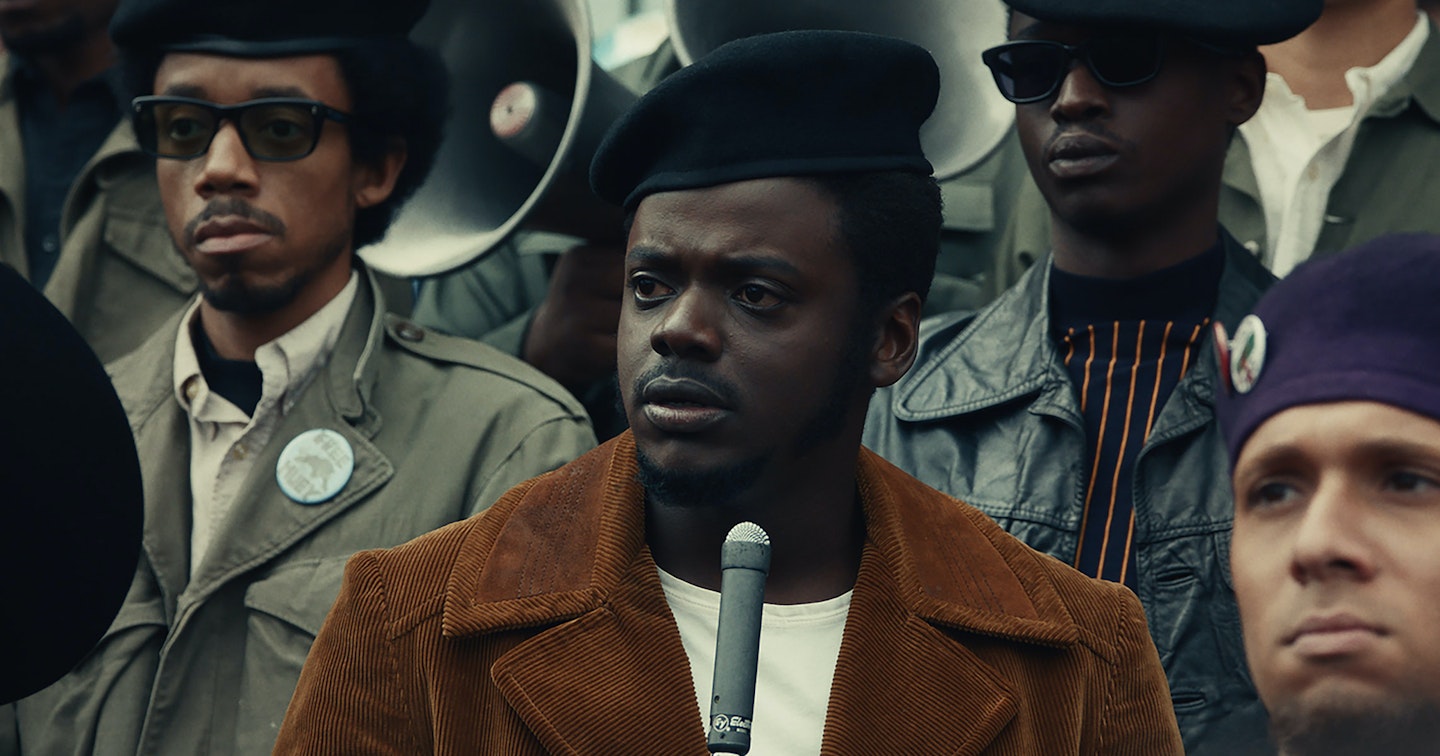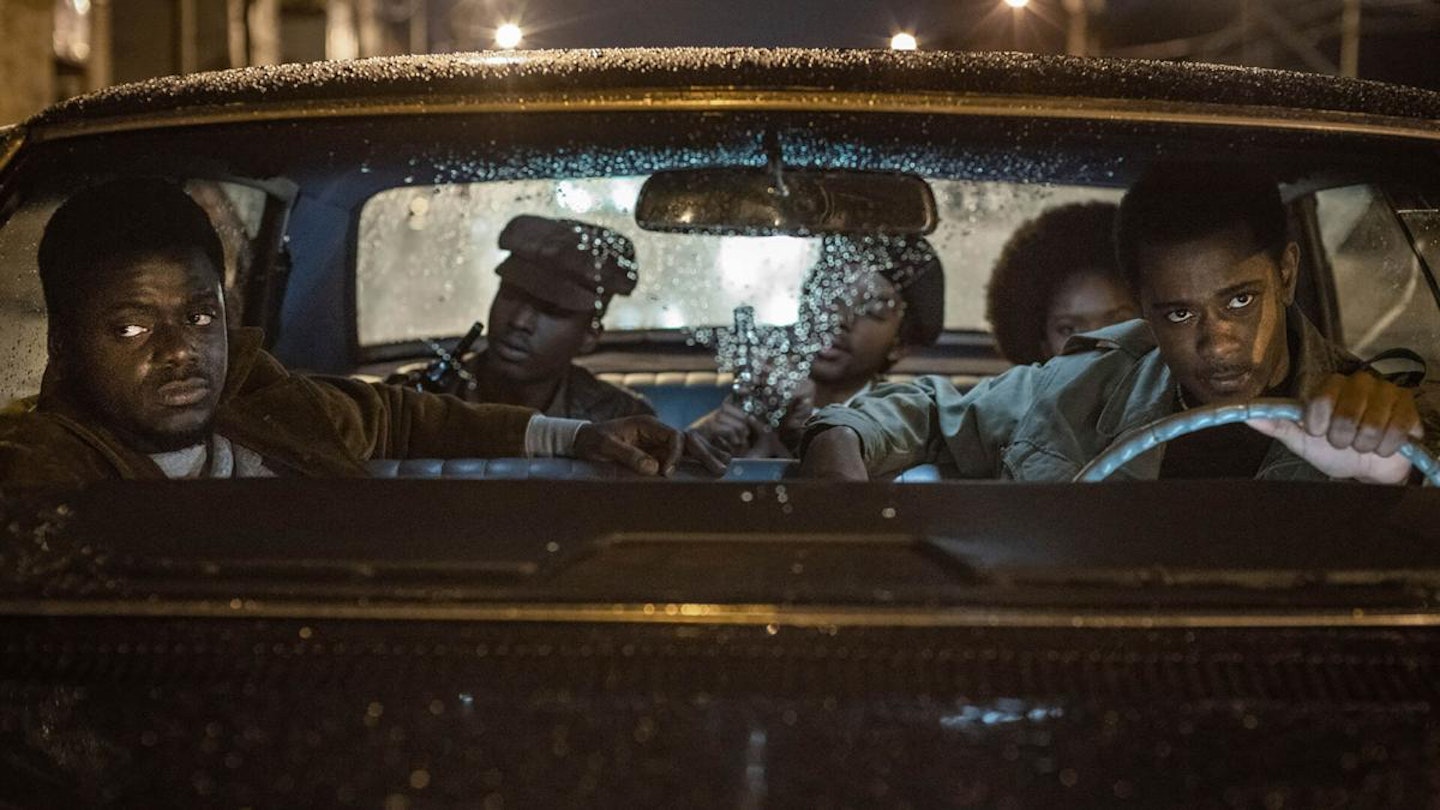In the end, it is an unexpected smile that tells you all you need to know about Judas And The Black Messiah. Midway through this Ryan Coogler-produced look at the life of Black civil rights activist Fred Hampton, LaKeith Stanfield’s character – a car thief turned notorious FBI informant called William O’Neal – is bluffing wildly to preserve his secret from comrades in the Black Panther Party. It’s a familiar dramatic beat, found in undercover-agent narratives as varied as Donnie Brasco and Point Break.
But what is less familiar is the final expression on O’Neal’s face. As the camera lingers in the tense aftermath of an angry exchange, Stanfield lets out the stifled laughter of someone who can’t quite believe he is getting away with it. In the wider context of director Shaka King’s powerful, pulverising second feature, it is a revealing moment. Not just because it illustrates the unusual choices and Molotov-cocktail volatility of Stanfield’s performance. But, also, because it points to a project that has a noticeable streak of unpredictability, an admirable reluctance to offer easy answers and, ultimately, an unsettling quality that lingers long after the credits have rolled on its visceral climactic scenes.
If you know anything about Fred Hampton — and Judas And The Black Messiah’s grand, biblical title hints at the mythic status his story has attained in the Black American community over the past 50 years — then you will have a good idea of the ultimately tragic way that those final moments play out. Still, it is to King’s credit that he makes the audience’s two-hour journey to a Googlable finale feel both utterly enthralling and surprising.

We open with an older O’Neal in 1989, perspiring beneath the glare of documentary cameras, before a thrilling bombardment of archive clips (Martin Luther King’s assassination, LA’s Watts uprising, Black Panther Party members training) takes us back to the late 1960s. Here, we see O’Neal again, involved in an elaborate car heist that goes very wrong, before he is brought in by the police. Bloodied, scared and facing a long stint in prison, he is approached by federal agent Roy Mitchell (Jesse Plemons, all buddyish, soft-spoken manipulation) and offered the chance to escape sentencing by infiltrating the local Illinois Black Panther Party, led by chairman Fred Hampton (Daniel Kaluuya): a young Chicago firebrand whose oratorial gifts are drawing both an eager following and the nervous attentions of the government.
King knows his subject well enough to imbue it with confident, emotional complexity and an irresistible, visual swagger
From there Judas And The Black Messiah’s first half becomes a propulsively tense look at O’Neal conning his way into Hampton’s inner circle, attempting to evade discovery (most notably during a masterfully paced armed summit between the Illinois Panthers and a local gang that O’Neal has history with) and negotiating his growing, dangerous closeness with Mitchell. Think The Departed in a Black Power beret and you won’t be a million miles off.
However, King – who also co-wrote the script with Will Berson and has been working on a version of this story since at least 2016 – knows his subject well enough to imbue it with confident, emotional complexity and an irresistible, visual swagger. Cinematographer Sean Bobbitt (best known for his work with Steve McQueen) brings an agile, intimate sweep to shots that, again, owe more than a little to Scorsese’s crackling kineticism. Plus Mark Isham and Craig Harris’ score — an arresting mix of discordant jazz horns, foot-stomping percussion and sudden, sternum-shaking music cues — could practically be a character in its own right.
And then, of course, there are the central performances. Kaluuya is typically magnetic, selling Hampton’s twinkly, ursine charm, battle-weariness and sonorous, half-rapped speaking voice; Dominique Fishback — as Hampton’s fellow revolutionary and partner, Deborah Johnson — leaves an indelible, heartbreakingly human impression with the few lines she has; and Stanfield deserves immense credit for turning a character who could easily be an irredeemable villain into a nuanced, sympathetic figure caught in the violent maw of a systemically racist government.
If there is a criticism then it is that the story would have benefitted from scenes establishing a more personal closeness between Hampton and O’Neal. But it’s a small note, ultimately, on what is a spry, exhilaratingly furious and beautifully acted elegy for one of the civil rights struggle’s more influential voices and fascinating moments. And it is a reminder, really, that though Black people are still engaged in the same centuries-long battles for justice, the fight must go on.
